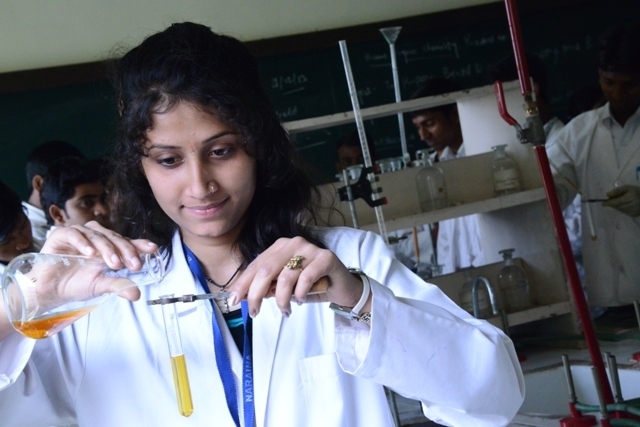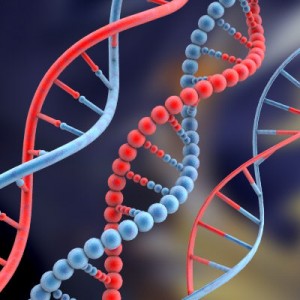NARAINA GROUP OF INSTITUTIONS
India's Top Ranked Technical & Professional Courses Institute
Affiliated to AKTU, BTE, CSJMU & UP State Medical Faculty
Approved By AICTE, INC & PCI
Whatsapp Helpline: 9918601160 | Admission HelpLines - Engineering(Degree Courses) : 9918601145 | Engineering(Diploma Courses) : 9918601103 | Management : 9918601102 | Pharmacy : 9918601164 | Nursing : 9918402171/9918402157

B.Tech (Bachelor of Technology)
Bachelor of Technology (B.Tech) is a four years full time Degree Program in different branches of Engineering and Technology, affiliated to AKTU, Lucknow and approved by AICTE. Among Naraina Group of Institutions, Naraina College of Engineering & Technoloby and Naraina Vidya Peeth Engineering & Management Institution are running B.Tech. The aim of this program is to produce skilled and dynamic technocrats who can combat the changing scenario of Corporate World.
The curriculum of the course is designed by the university in the way to meet the requirement to Present Industry. Along with the curriculum, the students are given an all round development by Personality Development Program (PDP), Aptitude Test, Mock Interviews, Seminars & Presentation, which are organized with association of well established Career Planning Cell of the College.
The B.Tech in Naraina College of Engineering And Technology comes with these branches :
Computer Science Engineering (CSE)
The Computer Science Department is self driven proactive nerve center which caters to the ever growing technology in the sphere of academic, research and training. Computer Science is the study of principle, applications and technology of computer.
It involves the study of Data and Data Structure, Principles of Data Architecture, both Hardware and Software, Problem Solving and Design Methodologies, Computer related topics such as Numeric Operation Research and Artificial Intelligence, Language Design, and Structure of Translation Technique.
Computer Science and Engineering have become interdependent on each other. The reason being the impact of computerization and its versatile capabilities to enhance, efficiency, speed accuracy and economy in work culture.
Read MoreElectronics & Communication Engineering (ECE)
.jpg)
The Electronic and Communication Department has two crucial aims which significantly affect our day to day life.
The main objective is to provide the students with a good foundation so that they become an effective System and Communication Engineers. The department is well equipped with several state-of-the-art labs which cater to the syllabus exhaustively.
The focus of Electronics and Communication Engineering is an understanding Electronic Network and Devices, Electro Magnetic Field Theory, Computer Fundamentals,Digital and Analog Communication, Analog Integrated Circuits, Satellite Communication, Microwave Engineering Antennae and Wave Propagation.
Read moreElectrical & Electronics Engineering (EN)
Electrical and Electronics, is a deeply committed function with a single purpose of orienting the ardent students to the challenges of the Industry, since its inception. The field of Instrumentation has undergone rapid changes in recent times with the advent of real time application in the era of Electronic Technology.
This branch deals with Electricals, Transducers, Electronics Instrumentation for single conditioning of processing, Micro Processor and Micro Controllers, PC based Instrumentation System, Power Electronics and Industrial Drives, Control System, Telemetry and Data Transmission, Bio Instrumentation Process Control and Intelligent Instrumentation.
Read MoreMechanical Engineering (ME)
.jpg)
The Mechanical Engineering Department is one of the key strength of the Institute. Its faculty and the facilities provide all resources to keep the students updated with latest industrial trends.
The teaching and research program in the department are organized according to both disciplinary and inter disciplinary themes covering all the core disciplinary areas of Mechanical Engineering including Dynamics, Controls, Solids Mechanics, Science Material, Fluid Mechanics, Thermodynamics, Automobile Engineering, and Machine Design.
This graduate program aims to prepare specialists, professionals, and scholars in Mechanical Engineering whose mission is to create knowledge, technologies and ideas through fundamentals research and its application.
Read moreCivil Engineering (CE)
.jpg)
Owing to tremendous growth in the Infrastructure sector in India and abroad, the demand of Civil Engineers has been on rise .To fulfill the growing demand and to cater the engineering needs of the nation, NGI offers B.Tech degree course in Civil Engineering which is a four year engineering degree programme under UP Technical University.
The undergraduate program provides rigorous analytical studies along with realistic practical solutions. The latest surveying techniques with Total Stations and Computer aided preparation of survey maps, GPS, GIS, and remote sensing are the important features of the curriculum.
Read moreTextile Technology

The Textile Technology program concentrates on the manufacturing of textile products, which is the key to the fiber, textile and apparel industries. Since many different processes and products are involved in textile manufacturing, the Textile Technology program is by necessity both flexible and diverse. Once students acquire an understanding of all textile manufacturing processes and products they can choose to concentrate on one of the following areas:
- Textile Design
- Manufacturing Technology
- Management Science
- Quality Techology
- Science
- Apparel Technology
The program involves many academic disciplines and offers a well-rounded, versatile degree which prepares students for a wide range of careers. Popular minors include Design, Language, Physical and Mathematical Science.
Chemical Engineering

Chemical engineering is the study and practice of transforming substances at large scales for the tangible improvement of the human condition. Such transformations are executed to produce other useful substances or energy, and lie at the heart of vast segments of the chemical, petroleum, pharmaceutical and electronic industries.
Chemical engineering differs from chemistry mainly in the focus on large scales. The definition of "large" is a bit arbitrary, of course, but is set mainly by the scale of useful commercial production. Typically, this scale ranges from barrels to tank cars, whereas the chemist tends to be concerned about sizes ranging from vials to beakers.
Bio Technology

Biotechnology is the application of biological organisms, systems, or processes by various industries to learning about the science of life and the improvement of the value of materials and organisms such as pharmaceuticals, crops, and livestock. It is a relatively new and fast-developing field that integrates knowledge from several traditional sciences: biochemistry, chemistry, microbiology, and chemical engineering.
The real future of biotechnology has more to do with chemistry than was ever imagined. Biotechnology depends on the ability to manipulate chemical structure. Opportunities are opening up for chemists across the biotechnology industry, offering the chance to work on the cutting edge of a dynamic and still largely developmental field.
Read MoreArchitecture & Interior Decoration

This course is an overview of the principles and elements of Interior Design. The student will come to recognize the basic skills used by Interior Design professionals. This course will emphasize the development of conceptual and technical skills as well as the creation of an artistic point of view on the part of the student
This course covers the functional, aesthetic, and spatial design of interior spaces. The vocabulary and drafting skills used by professionals in the interior design industry will also be covered. Students will examine environmental, interior and architectural problem solving through space analysis, planning, and decoration of hypothetical contract and residential projects.
